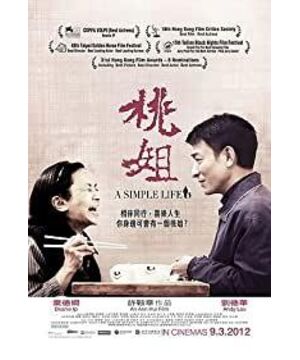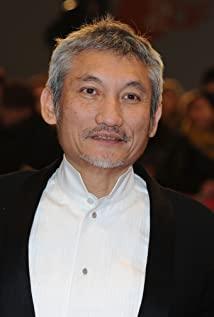"Sister Tao" uses the techniques of new wave movies, which at first glance is quite similar to "Day and Night in Tin Shui Wai". But "Day and Night" is more bland and gentle, and is to write "human touch". And "Sister Peach", described in the words of Hong Kong writer Huang Biyun, is both gentle and violent.
The film tells the story of how a Hong Kong maid, Sister Tao, who served her host for four generations, grew old and finally died. The theme is naturally the relationship between Sister Tao and the host's family, "It's not relatives, it's relatives."
This kind of subject matter, if handed over to a mainstream director in mainland China, will become a sensational drama of "love is thicker than blood"; if handed over to a director of "angry youth", it will become a "discussing the coldness of Hong Kong nursing homes and the numbness of modern society" cruel". But Xu Anhua always said coldly: I will tell you this story and tell you all about this story, but I will not judge.
So after we saw that Sister Tao had a stroke, Roger had a few words with her in the hospital and decided to send her to a nursing home. We know that he doesn't come to see her very often, but every time he comes, he is so sincere, like a son visiting his mother. We saw Roger's nostalgic and distressed eyes when Sister Tao was looking at the old things, and saw his back with a sigh when Sister Tao was seriously ill. We also saw Roger's mother caressing Sister Tao's hair, her eyes full of gratitude, guilt and reluctance.
Xu Anhua did not let them say anything. The relationship between Sister Tao and the host is always polite, and the words are always "on the stage" and can be seen everywhere: I will see you next time. I brought you bird's nest. Don't eat unhealthy things. I'm going to find you a worker. Too polite. thank you all. But the tenderness and sympathy between the corners of each other's eyes and the brows of each other's eyes and the familiarity and trust in each other's eyes are more silent than sound at this time.
But life is much more than that. Roger wouldn't choose to spend the Spring Festival with Sister Tao. He and his family called Sister Tao on New Year's Eve. The crowd was so lively that no one wanted to think about how deserted Sister Tao was in the nursing home. Roger's sister said earnestly and without shyness, "You have done the birth and rearing of Sister Tao, and the burial will be handed over to me." Roger's mother wanted to let Sister Tao live in the old house, and she said lightly: vacate the house quickly, how long she can live.
These details contrast with the various funny, warm and sad plots of the nursing home, which reflect the softness of the human heart and the roughness of the world.
The film ends with Sister Tao's clean and bland funeral. She has served a family for four generations all her life, she has never been mistreated, loved by family members, and even integrated into all the memories of this family, but she does not belong to this family after all.
Movies don't just dream, they reveal life as it is: it's not too bad, but it's not too good either. There will always be some people who will warm you, and there will always be some things that will hurt you. It's gentle when it's gentle, making you feel like you're the darling of God; it's violent when it's violent, as if all the things you hold dear have been abandoned by fate. No one knows in advance how to face life, and no one will ever know what it means to "live this life in vain". If Xu Anhua really tried to tell us something through the movie, it might be: live well, live well, until the day of death.
View more about A Simple Life reviews











